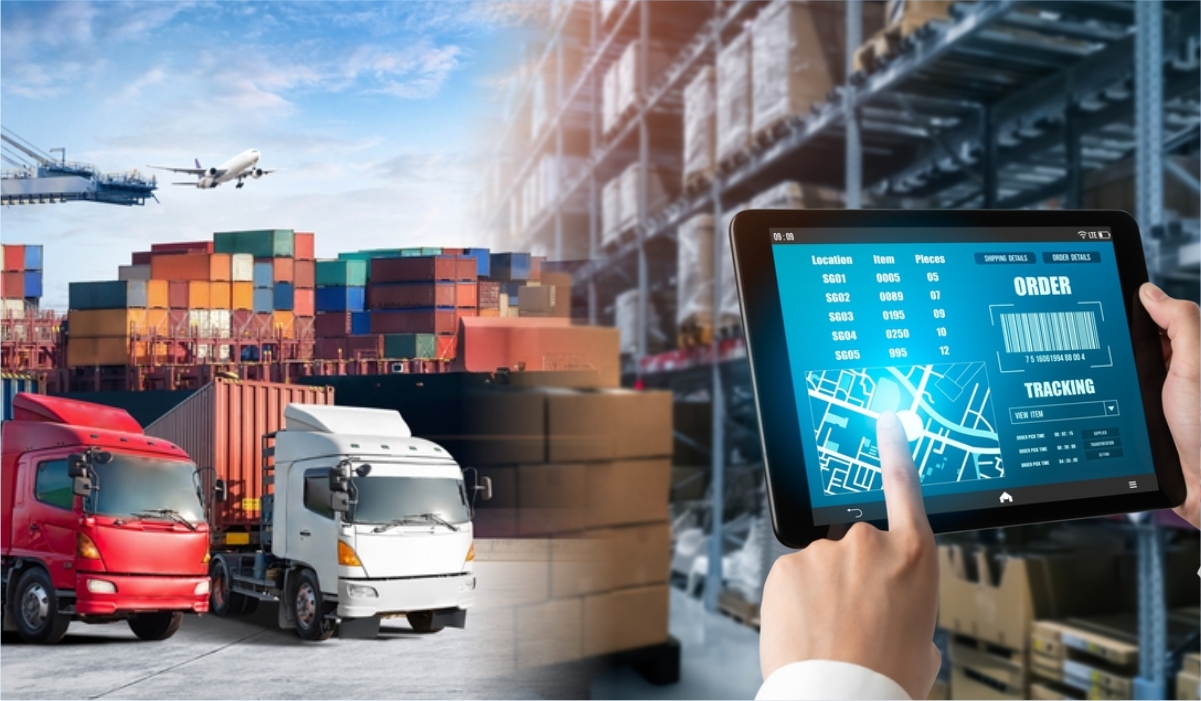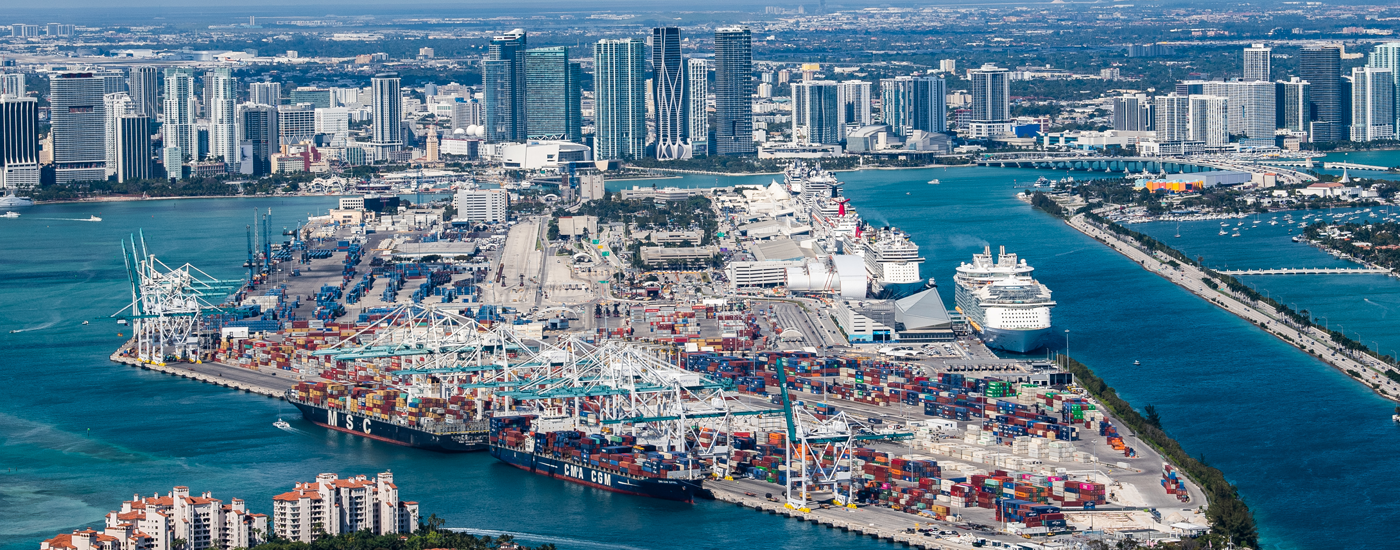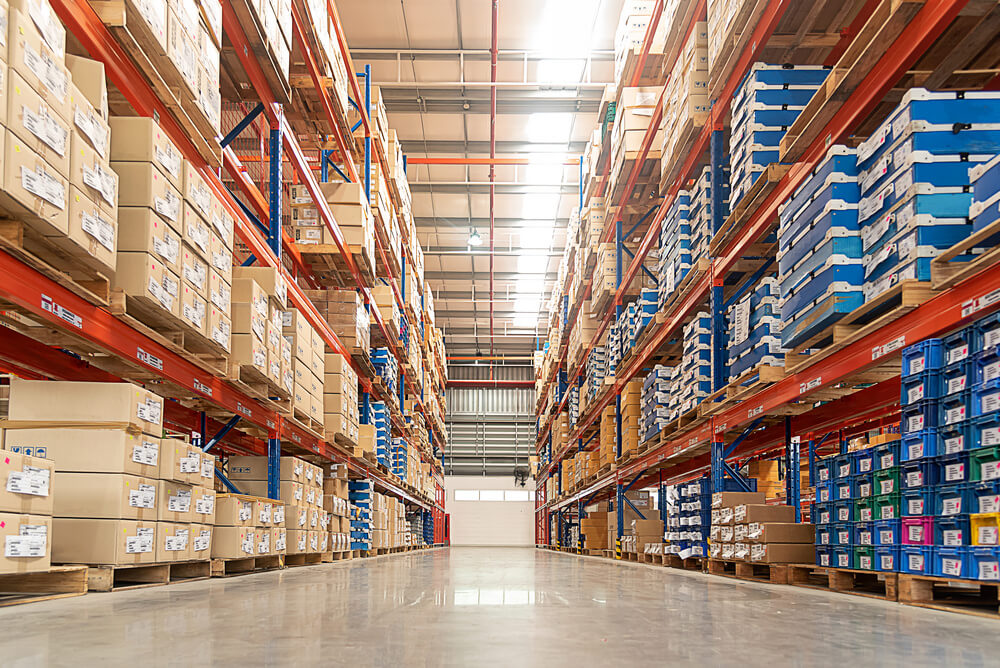 1. Introduction
1. Introduction
In today’s high-speed, interconnected global economy, supply chain security is no longer a luxury—it is a critical necessity. As goods move through multiple touchpoints—from manufacturing plants to distribution centers and finally to retail shelves—each stage of the chain is vulnerable to various threats. Whether it’s cyberattacks, cargo theft, counterfeiting, or natural disasters, the risks can cripple a company’s operations and tarnish its brand image.
Security services in Florida offer a multifaceted solution to these challenges. With Florida’s strategic position as a gateway to Latin America and the Caribbean, as well as its bustling ports and logistic hubs, the state is home to some of the most advanced security solutions in the United States. From security companies in Miami specialized in port security to security companies in West Palm Beach focusing on warehouse and logistics, Florida’s security sector provides comprehensive protection strategies that adapt to an ever-changing threat landscape.
This blog post dives deep into how these Florida security services fortify every link in the supply chain. We will discuss the biggest threats to supply chain security, innovative technologies shaping the industry, and best practices for selecting the right security partner. By the end of this comprehensive guide, you’ll understand why investing in robust security measures isn’t just about preventing losses but also about safeguarding your company’s reputation and ensuring operational continuity.
2. The Importance of Supply Chain Security
Safeguarding Financial Interests
One of the primary reasons businesses invest in supply chain security is to protect their financial assets. A single theft or data breach can lead to millions of dollars in losses, including the cost of the goods themselves, potential legal fees, and the loss of future business due to reputational damage. Companies that prioritize security often see a strong return on investment, as fewer losses lead to greater profitability and stability.
Protecting Brand Reputation
In an era of instant social media updates and 24/7 news cycles, brand reputation is more fragile than ever. A security breach that disrupts deliveries or compromises customer data can spread quickly, eroding consumer trust. Brands with a track record of secure operations attract loyal customers who value reliability and accountability.
Ensuring Regulatory Compliance
Supply chain operations are subject to various regulations, including Customs-Trade Partnership Against Terrorism (C-TPAT), Transportation Security Administration (TSA) guidelines, Occupational Safety and Health Administration (OSHA) standards, and other local and federal requirements. Failing to comply can result in hefty fines, legal repercussions, and disruptions in the ability to move goods. Florida security services specialized in logistics and maritime operations ensure that companies meet or exceed these regulatory standards.
Enhancing Operational Efficiency
When security protocols are integrated seamlessly into daily operations, they do more than just protect assets; they enhance efficiency. Real-time tracking, advanced surveillance systems, and streamlined access control reduce bottlenecks in the supply chain by ensuring smooth handoffs between different operational phases. This efficiency leads to timely deliveries, reduced errors, and high customer satisfaction.
3. Key Threats to the Modern Supply Chain
3.1 Cybersecurity Threats
- Ransomware Attacks: Criminals encrypt critical data and demand payment for its release. This can halt operations indefinitely.
- Data Breaches: Hackers target vulnerable systems to steal sensitive corporate or customer information, leading to severe financial and reputational damage.
- Phishing Schemes: Supply chain personnel are often targeted with fraudulent emails designed to trick them into revealing login credentials or company data.
3.2 Cargo Theft and Physical Security Challenges
- Hijacking: Loaded trucks are hijacked en route to distribution centers, resulting in the loss of valuable cargo.
- Insider Theft: Employees or contractors with inside knowledge orchestrate theft from within warehouses or during transit.
- Tampering and Vandalism: Criminals may tamper with security seals, documentation, or even sabotage goods to undermine competitors or cause chaos.
3.3 Counterfeit Goods and Fraud
- Gray Market Infiltration: Counterfeit products enter legitimate distribution channels, posing legal and reputational risks.
- Fraudulent Transactions: Fake purchase orders, identity theft, and invoice scams inflate costs and damage trust.
3.4 Natural Disasters and Geopolitical Risks
- Hurricanes and Floods: Florida’s climate makes it susceptible to extreme weather, which can shut down ports and roads.
- Political Instability: Global suppliers may operate in regions with unstable political climates, leading to sudden disruptions.
- Trade Disputes: Tariffs, sanctions, and bans can force companies to quickly reroute or adapt their supply chains.
4. How Security Services in Florida Address These Threats
Florida is a critical logistics hub with multiple ports, airports, and roadway networks facilitating both domestic and international trade. Security services in Florida are well-versed in handling the diverse range of threats that come with such high-volume trade operations. Their multifaceted solutions include:
- 24/7 Surveillance: Monitoring warehouses, port facilities, and corporate offices to deter theft or vandalism.
- Advanced Access Control: Biometric scanners, keycard systems, and robust gatekeeping procedures prevent unauthorized entry.
- Regular Risk Assessments: Thorough security audits help identify vulnerabilities and develop mitigation strategies.
- On-Site Security Personnel: Armed or unarmed guards trained in logistics security, crisis management, and emergency protocols.
- Cybersecurity Solutions: Firewalls, encryption, and real-time network monitoring to thwart cyber threats and protect sensitive data.
These comprehensive services are particularly essential for companies looking to protect high-value goods, sensitive data, or intellectual property.
5. Security Companies in Miami: Safeguarding Port & Cargo
5.1 Why Miami’s Ports Are High-Value Targets
Miami is one of the busiest ports in the United States, acting as a gateway for cargo from around the world. The sheer volume of goods flowing through the Port of Miami makes it an attractive target for smugglers, thieves, and cybercriminals. Hence, security companies in Miami are highly specialized in maritime operations, port security, and customs compliance.
5.2 Core Services Offered by Miami Security Firms
-
Maritime Security Solutions
- Patrol Boats and Drone Surveillance: Keeping an eye on high-traffic maritime corridors.
- Diver Inspections: Underwater inspections to detect tampering or smuggling activities.
-
Customs Compliance Assistance
- Documentation Verification: Ensuring all cargo paperwork is accurate and aligns with U.S. Customs regulations.
- Training Programs: Educating staff about import/export regulations to minimize legal risks.
-
Cargo Tracking and Seals
- GPS & RFID Tracking: Providing real-time updates on cargo location to quickly identify anomalies.
- Tamper-Evident Seals: Immediate detection of unauthorized access during transit.
-
Crisis Management and Evacuation Protocols
- Hurricane Preparedness Plans: Essential in Florida’s hurricane-prone climate.
- Contingency Routing: Backup shipping lanes and air routes in case of port closures.
With these services, security companies in Miami protect billions of dollars’ worth of goods each year, ensuring local and multinational businesses can operate without fear of major disruptions.
6. Security Companies in West Palm Beach: Ensuring Warehouse Protection
6.1 Key Role of Warehouses in Supply Chain Security
While ports handle the entry and exit of goods, warehouses serve as the backbone for storage, consolidation, and distribution. If a warehouse’s security is compromised, companies risk losing not only physical goods but also critical data on inventory levels, product specifications, and customer information.
6.2 Specialized Services in West Palm Beach
Security companies in West Palm Beach focus on protecting these pivotal nodes through services such as:
-
AI-Driven CCTV Surveillance
- Real-Time Alerts: Intelligent cameras that trigger immediate alerts upon detecting suspicious activities.
- Facial Recognition: Advanced software to identify unauthorized individuals within restricted zones.
-
Biometric Access Control
- Fingerprint and Iris Scans: Minimizing the risk of stolen or forged access credentials.
- Time-Stamped Logs: Detailed records of who accessed what area and when.
-
Security Patrols
- Randomized Patrol Routes: Preventing criminals from predicting schedules or planning inside jobs.
- Night Vision Equipment: Enhancing visibility during late hours.
-
Fire and Disaster Response Systems
- Alarm Integration: Combining fire alarm systems with security protocols for swift evacuation.
- Emergency Power and Lighting: Ensuring critical security systems remain functional during blackouts or storms.
By leveraging these robust security measures, West Palm Beach security firms help companies maintain smooth logistics operations and protect their assets from theft, vandalism, and other unforeseen risks.
7. Cybersecurity as a Core Component of Supply Chain Security
7.1 Why Cyber Threats Can Paralyze Supply Chains
In a modern supply chain, almost every stage is digitized—from order processing and inventory management to shipping tracking and customer data storage. Cyberattacks can freeze entire systems, causing missed deliveries, production stoppages, and loss of critical data.
7.2 Essential Cybersecurity Measures
-
Multi-Factor Authentication (MFA)
- Ensures only authorized personnel can access sensitive systems by requiring additional verification steps.
-
Encryption Techniques
- Protects data in transit and at rest, making it unreadable without the correct decryption keys.
-
Regular Security Audits
- Identifies system vulnerabilities and applies timely patches to safeguard against evolving threats.
-
Employee Training Programs
- Educates staff on recognizing phishing attempts, securing passwords, and following best practices for handling sensitive information.
-
Network Segmentation
- Limits potential damage from a breach by separating critical systems from less sensitive networks.
7.3 Real-World Impact of Cyber Attacks on Supply Chains
- Ransomware Halting Operations: When a large manufacturer’s systems are locked, production lines shut down, and deliveries are delayed, often causing a ripple effect across multiple partners and vendors.
- Data Breaches: Confidential customer or supplier information can be leaked, leading to legal repercussions and loss of trust.
- Industrial Espionage: Competitors may gain insights into production methods or pricing strategies, undermining a company’s competitive edge.
Integrating cybersecurity with physical security protocols creates a holistic safety net that is far more effective than isolated solutions.
8. Innovative Technologies Shaping Supply Chain Security
8.1 Artificial Intelligence (AI) for Real-Time Threat Detection
AI algorithms can analyze vast amounts of data—including camera feeds, shipping documentation, and employee access logs—to spot patterns indicative of a security breach. Machine learning models refine these capabilities over time, becoming even more accurate in identifying unusual behaviors or anomalies.
8.2 RFID and GPS Tracking
Radio-Frequency Identification (RFID) tags and GPS devices provide continuous updates on cargo location and status. This technology not only deters theft but also boosts operational efficiency by providing real-time insights into inventory levels and transit times.
8.3 Blockchain Technology for Tamper-Proof Record-Keeping
Blockchain offers transparent and immutable ledgers, making it nearly impossible to alter shipping documents or transactional records. This technology ensures authenticity, traceability, and accountability in complex supply chains, significantly reducing the risk of fraud and counterfeiting.
8.4 Drone Technology for Aerial Surveillance
Drones equipped with high-resolution cameras and thermal imaging can conduct aerial surveys of large facilities like ports, warehouses, and distribution centers. Security companies in Florida use drones for rapid response, crowd management, and perimeter surveillance, filling in gaps where traditional security measures might be lacking.
9. Regulatory Compliance & Industry Standards

9.1 Customs-Trade Partnership Against Terrorism (C-TPAT)
C-TPAT is a voluntary program led by U.S. Customs and Border Protection. Companies participating in C-TPAT undergo audits and adhere to stringent security guidelines, resulting in:
- Reduced number of inspections at U.S. ports.
- Faster border crossings.
- Priority processing for shipments.
Security services in Florida help organizations align with these standards by conducting risk assessments, implementing security procedures, and maintaining detailed documentation required for C-TPAT compliance.
9.2 Transportation Security Administration (TSA) Guidelines
For businesses handling air cargo, the TSA mandates various protocols such as:
- Secure Packing and Sealing: Ensuring no tampering occurs after cargo is screened.
- Employee Vetting: Thorough background checks for personnel with access to sensitive areas.
- Access Controls in Cargo Areas: Restricting unauthorized access to air cargo warehouses and loading zones.
9.3 Occupational Safety and Health Administration (OSHA) Compliance
OSHA focuses on worker safety, which indirectly supports supply chain security by:
- Mandating safe working conditions to minimize theft and accidents.
- Requiring adequate lighting and emergency exits, which also assists in better surveillance and swift evacuations.
By collaborating with security companies in Miami and security companies in West Palm Beach, businesses can design and maintain safe environments that comply with both federal and state guidelines.
10. Cost-Benefit Analysis of Investing in Security Services
10.1 Upfront Costs vs. Long-Term Savings
Security services may require an initial investment in personnel, equipment, and technology. However, these costs are often offset by long-term savings, including:
- Reduced theft and fraud losses.
- Lower insurance premiums due to safer operations.
- Avoiding expensive lawsuits and regulatory fines.
10.2 Enhancing Reputation and Customer Trust
A robust security framework adds intangible value—customer confidence. Businesses that demonstrate high-level security protocols attract customers who value reliability and trustworthiness. This loyalty can significantly contribute to a firm’s competitive edge.
10.3 Preventing Operational Disruptions
Operational downtime can be devastating. By proactively addressing security gaps, companies avoid costly disruptions, maintain consistent delivery schedules, and preserve revenue streams.
11. Emergency Response & Crisis Management
11.1 Importance of a Well-Structured Crisis Plan
Whether it’s a natural disaster like a hurricane or a human-made incident such as an armed robbery, having a crisis management plan in place is essential. This plan should outline:
- Evacuation Procedures: Clearly marked exits, alarm systems, and designated meeting points.
- Communication Protocols: Established channels for quickly informing stakeholders, employees, and local authorities.
- Resource Allocation: Ensuring sufficient emergency supplies like water, first-aid kits, and backup power.
11.2 Role of Security Services in Crisis Scenarios
Many security companies in Florida offer specialized emergency response teams trained to:
- Neutralize Immediate Threats: Whether it’s a theft attempt or a violent intruder.
- Coordinate with Local Authorities: Ensuring law enforcement, fire departments, and medical teams work in harmony.
- Facilitate Safe Evacuations: Guiding employees and visitors to safety while securing assets.
11.3 Business Continuity During and After Crises
Beyond the immediate response, a crisis management plan should focus on maintaining or quickly resuming operations:
- Backup Systems and Data Storage: Enabling staff to continue work from alternate locations.
- Alternative Supply Routes: Rerouting shipments if primary logistics networks are compromised.
- Post-Incident Review: Analyzing the event to improve future responses and security protocols.
12. Selecting the Right Security Partner in Florida
12.1 Industry Experience and Specialization
Look for security companies that have a proven track record in logistics and supply chain security. Whether you require port security in Miami or warehouse protection in West Palm Beach, expertise in these areas is crucial.
12.2 Certifications and Compliance
Security companies that hold certifications such as C-TPAT, ISO 28000 (Supply Chain Security Management Systems), or TAPA (Transported Asset Protection Association) demonstrate a higher level of professionalism and commitment to best practices.
12.3 Adoption of Advanced Technologies
A modern security firm should offer:
- AI-driven Surveillance
- Cybersecurity Frameworks
- IoT and RFID Tracking
- Drone Surveillance
12.4 References and Client Reviews
Always check testimonials and case studies from previous clients. If possible, speak directly with other businesses in your industry who have worked with the security provider to gain insights into their performance and reliability.
13. Future Trends in Supply Chain Security
The security landscape evolves in tandem with emerging technologies and global events. Some future trends include:
-
AI-Powered Predictive Analytics
- Systems that predict potential security incidents before they happen by analyzing historical data and current conditions.
-
Enhanced Biometric Solutions
- Advances in facial recognition, retinal scans, and even DNA-based verification for ultra-secure facilities.
-
Blockchain for Comprehensive Traceability
- Wider adoption of blockchain for real-time and immutable tracking of goods, significantly reducing fraud.
-
Integrated Platforms
- Unified systems connecting physical security, cybersecurity, and operational data, offering a 360° view of the supply chain.
-
Environmental and Social Governance (ESG)
- Greater emphasis on sustainability and ethical sourcing, requiring transparent and secure supply chains.
14. Case Study: A Florida-Based Logistics Company Success Story
To illustrate the real-world impact of security services in Florida, consider this hypothetical yet representative scenario:
Company: SunCoast Logistics, headquartered in Miami with a major distribution center in West Palm Beach.
The Challenge
SunCoast Logistics faced growing concerns about cargo theft, especially valuable electronics, during transit between PortMiami and its West Palm Beach warehouse. Additionally, the company experienced several phishing attempts that compromised sensitive data on shipping schedules.
The Solution
- Security Companies in Miami: Deployed advanced tracking devices and tamper-proof seals on each cargo container. Implemented comprehensive background checks for all drivers and introduced random route changes.
- Security Companies in West Palm Beach: Installed AI-driven CCTV surveillance, biometric access control, and integrated fire alarm systems. Regular patrols and on-site security personnel deterred inside jobs.
- Cybersecurity Measures: Upgraded the company’s firewalls, introduced multi-factor authentication, and launched a mandatory cybersecurity training program for employees.
The Results
- Zero Cargo Thefts in 12 Months: With enhanced physical security, SunCoast Logistics eliminated losses from theft.
- Increased Operational Efficiency: Real-time tracking reduced transit delays, while automated systems minimized human error.
- Stronger Brand Reputation: Clients reported higher satisfaction, and SunCoast leveraged its security enhancements in marketing to win new contracts.
- Compliance Assurance: The company easily passed audits related to C-TPAT and TSA regulations.
This success story underscores how an integrated security approach can revolutionize a supply chain’s resilience and efficiency.
15. Common Mistakes & Pitfalls to Avoid
-
Focusing Only on Physical or Cyber Aspects
- Neglecting one dimension can leave the supply chain vulnerable. A balanced approach is essential.
-
Insufficient Employee Training
- Even the most advanced systems fail if employees are not educated on security best practices.
-
Underestimating Insider Threats
- A robust vetting and monitoring system is critical; insider threats are one of the hardest to detect.
-
Failure to Update Technology
- Cyber threats evolve quickly. Regular software updates and system patches are mandatory.
-
Ignoring Disaster Recovery Plans
- Natural disasters are a reality in Florida. Not having a well-defined crisis management plan can cripple operations.
16. Conclusion
Securing a supply chain in the modern age is a complex undertaking. Companies face an array of threats—from cybercriminals targeting digital assets to sophisticated thieves eyeing high-value cargo in transit. Security services in Florida rise to the challenge by offering comprehensive solutions tailored to the state’s unique logistics environment.
- Security companies in Miami excel at port and maritime security, leveraging advanced tracking, drone surveillance, and customs compliance expertise.
- Security companies in West Palm Beach specialize in warehouse protection, ensuring AI-driven CCTV, biometric access control, and on-site security deter theft and fraud.
- Cybersecurity completes the puzzle, safeguarding digital assets with encryption, multi-factor authentication, and continuous network monitoring.
By investing in professional Florida security services, businesses not only reduce financial and reputational risks but also achieve operational efficiencies that drive long-term growth. In an era where supply chain continuity is vital to success, robust security measures are more than an added expense—they are the backbone of resilient and reputable organizations.
17. FAQs
17.1 What are the biggest threats to supply chain security?
The most significant threats include cybersecurity breaches, cargo theft, counterfeit goods, employee fraud, and disruptions due to natural disasters.
17.2 How can security companies in Miami help with port security?
Security companies in Miami specialize in maritime operations, offering surveillance, drone monitoring, cargo tracking, and customs compliance to safeguard cargo moving through ports.
17.3 What security services do companies in West Palm Beach offer?
They excel in warehouse security through AI-driven CCTV, biometric access control, randomized patrols, and crisis management protocols to ensure valuable inventory is protected at all times.
17.4 How does cybersecurity impact supply chain security?
Cybercriminals target weak links in digital infrastructure, potentially halting operations through ransomware, data breaches, or phishing. Solid cybersecurity measures like firewalls, encryption, and employee training significantly reduce these risks.
17.5 Why should businesses invest in security services in Florida?
By investing in professional security solutions, companies prevent financial losses, maintain regulatory compliance, enhance their reputation, and ensure smooth, uninterrupted operations. In Florida’s high-volume trade environment, these benefits are indispensable for success.
Final Takeaway:
In a competitive marketplace where delays, thefts, and data breaches can spell disaster, partnering with security services in Florida is not just about protection—it’s about strategic advantage. By bolstering your supply chain with state-of-the-art security protocols, you’re investing in the long-term resilience and credibility of your business.


